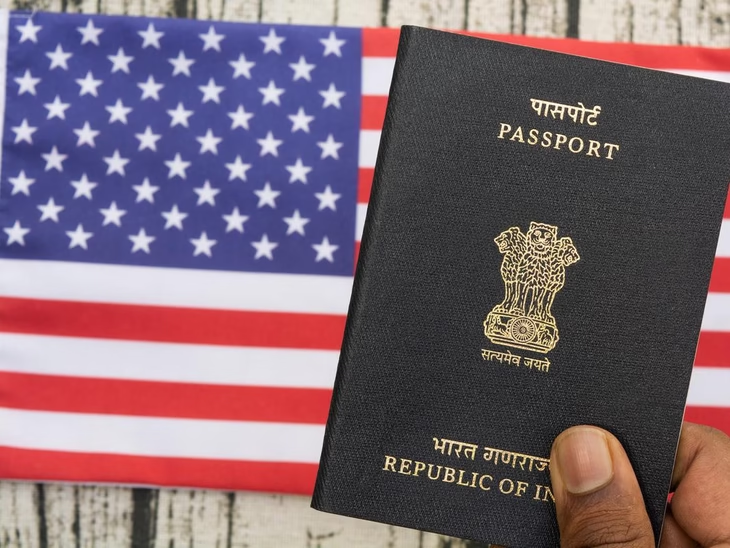
- Hindi news
- Business
- Reliance SBI Market Cap 2025; ICICI HDFC Bank | Bharti Airtel Bajaj Finance
Mumbai48 minutes ago
- Copy link
Market cap is the value of any company’s total outstanding stocks, ie all the shares that its shareholders currently have.
In terms of market valuation, 6 out of the top-10 companies in the country have increased by Rs 1.62 lakh crore in this week’s business. During this time, telecom company Bharti Airtel was the top gainer.
Airtel’s market capitalization has increased by Rs 54,056 crore to Rs 11.04 lakh crore. During this period, the country’s most valuable company Reliance Industries Limited Market Cap has increased by ₹ 50,070 crore to ₹ 19.82 lakh crore.
Bajaj Finance value decreased by ₹ 17,876 crore
HDFC Bank was at number three in terms of shares. During this time the company sold shares worth ₹ 38,504 crore, now the company’s market cap has increased to ₹ 15.07 lakh crore. At the same time, Bajaj Finance was the top loser. The value of the company has reduced by Rs 17,876 crore to Rs 5.62 lakh crore.
Apart from this, the value of TCS has come down ₹ 4,613 crore to ₹ 12.43 lakh crore, Hindustan Unilever value has come down ₹ 5.42 lakh crore to ₹ 5.42 lakh crore and Life Insurance Corporation of India i.e. LIC’s value has come down to ₹ 1,107 crore to ₹ 5.92 lakh crore.
Market cap of these companies increased
| Company | Increase in market cap (in crores) | Current market cap (in lakh crores) |
| Airtel | ₹ 54,056 | ₹ 11.04 |
| reliance | ₹ 50,070 | ₹ 19.82 |
| Hdfc bank | ₹ 38,504 | ₹ 15.07 |
| Infosys | ₹ 8,433 | ₹ 6.74 |
| Icici bank | ₹ 8,012 | ₹ 10.18 |
| SBI | ₹ 3,213 | ₹ 7.10 |
| total | 1,62,288 | , |
Source: BSE (June 20, 2025)
Market value of these companies decreased
| Company | Market cap declines (in crores) | Current market cap (in lakh crores) |
| Bajaj finance | ₹ 17,876 | ₹ 5.62 |
| Tcs | ₹ 4,613 | ₹ 12.43 |
| Hul | ₹ 3,336 | ₹ 5.42 |
| Lic | ₹ 1,107 | ₹ 5.92 |
| total | ₹ 26,932 | , |
Source: BSE (June 20, 2025)
Top-10 companies of the country in terms of market cap
| Company | Market Cap 20 June |
| reliance | ₹ 19.82 |
| Hdfc bank | ₹ 15.07 |
| Tcs | ₹ 12.43 |
| Airtel | ₹ 11.04 |
| Icici bank | ₹ 10.18 |
| SBI | ₹ 7.10 |
| Infosys | ₹ 6.74 |
| Lic | ₹ 5.92 |
| Bajaj finance | ₹ 5.62 |
| Hul | ₹ 5.42 |
Source: BSE (June 20, 2025)
What is a market capitalization?
Market cap is the value of any company’s total outstanding stocks, ie all the shares that its shareholders currently have. Its calculation is done by multiplying the total number of issued shares of the company by their price.
Understand this with an example …
Suppose … People have purchased in 1 crore stock market of company ‘A’. If the price of a share is Rs 20, then the company’s market value will be Rs 1 crore x 20 or 20 crores.
The market value of companies increases due to increase in share prices or decreases. There are many other reasons for this …
1. What does the growth of market cap increase?
- Share price- Increased demand for shares in the market leads to competition, due to which prices rise.
- Strong Financial Performance: The company attracts investors in things like earnings, revenue, profits.
- Positive News or Event- Product launch, acquisition, new contract or regulatory approval increases demand for shares.
- Market Service- Bulish market trends or sector specific expectations such as IT sector estimate attracts investors.
- Issuing shares at high price: If a company issues new shares at a high price, the market cap increases without decreasing the value.
2. What does the decreasing market cap mean?
- Decline in share price- Due to lack of demand, the price of shares falls, it directly affects the market cap.
- Bad results- Investors sell shares due to decrease in earnings, losses or losses in a financial year or quarter.
- Negative News- Any negative news related to scandal, legal action, product failure or leadership reduces investment.
- Economy or market decline- The recession, increase in interest rates and below can drop market shares.
- Share buyback or delisting: If a company purchases shares back or becomes private, the number of outstanding shares decreases.
- Industry Challenge: The demand for shares decreases due to regulatory change, technological disorder or declining demand for a sector.
3. What is the impact on the company and investors on market cap fluctuations?
Effect on the company: The big market cap helps the company to raise funds from the market, take loans or to acquire other companies. At the same time, small or low market cap reduces the company’s ability to take financial decisions.
Effect on investors: Increasing market cap provides direct benefits to investors. Because the price of their shares increases. The same, the decline can cause damage, allowing investors to decide to sell shares.
Example: If the TCS market cap increases with ₹ 12.43 lakh crore, then investors’ assets will increase, and the company can get more capital for future investment. But if the market cap falls, it can be damaged.
4. How does the market cap use?
- The market cap is used to catarise the shares of companies, so that investors will help in choosing them according to their risk profiles. Such as large cap, mid cap and small cap companies.
- Whether or not a company will get a profit in shares, it is estimated by looking at many factors. One of these factor is also a market cap. Investors can find out how big the company is by looking at the market cap.
- The higher the market cap of the company, the better it is considered to be a good company. According to demand and supply, stock prices rise and decrease. Therefore, the market cap is the public’s public percevad value.





